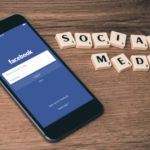The normal process of urination, also called micturition, depends upon many factors, and the maximum amount of urine the urinary bladder can withhold is around 400-600 ml.
Keeping a regular track of urine patterns, urine color, and odor can help people recognize early symptoms of underlying diseases that may prove detrimental if unchecked.
What is the normal frequency of urination after drinking water? And how many times should you pee in a day? Keep reading to find out.

How long does it take to pee after drinking water?
A healthy urinary tract can hold about 2 cups/ 16 ounces of urine before there is an urge to urinate.
Our bodies need 9 to 10 hours to produce such an amount of urine daily, but urination frequency also depends on several factors such as:
- Fluid intake
Drinking plenty of water dilutes the urine and bowel movement.
As a result, you may feel an increased urge to pee. Health experts recommend that 9 to 12 glasses of plain water should be taken per day.
Fluid intake exceeding this limit can lead to excessive urine production.
- Levels of hydration
The adequate hydration level of the body can also play an important role in affecting urination patterns.

If you do not drink water, your body will become dehydrated and less water will pass through the urinary bladder, which will decrease urinary frequency.
Dehydration can lead to fatigue, headache, and constipation.
If water consumption exceeds the normal limit, it can deplete electrolyte levels in the body as more urine is produced and passed out of the body.
This condition is called hyponatremia.
- Body temperature
Urination frequency also depends on body temperature and weather. At cold temperatures, there is less sweat production that can increase the urge to pee.
At the same time, hot temperatures limit urination frequency.
- Bladder infections
Urinary Tract Infections (UTI) occur when bacteria enter the urethra through the penis or vagina and multiply inside the bladder.
The most common symptoms of a UTI include pain while passing urine, burning sensation during urination, the urgency to pass urine, and cloudy or bloody urine.
Other symptoms include fever, chills, nausea, vomiting, abdominal discomfort, inflammation, and decreased urine output.
A urologist diagnoses bladder infections with the help of cystoscopy (Flexible cystoscopy and rigid cystoscopy)
Bladder infections can also cause painful urination (dysuria), excessive urination at night (nocturia), and an inability to control the urge to pee (incontinence).
A neurogenic bladder may also present symptoms like cloudy/ discolored urine and urinary retention (a condition where a person cannot empty his bladder upon urinating).
- Emotional disorders
Research has shown that stress and anxiety can negatively influence the urinary bladder and cause an overactive bladder (OAB).

Stress doesn’t affect the urinary bladder directly, but it contributes to urologic diseases by weakening the body’s immune system.
A positive attitude approach and behavioral therapy can help relieve symptoms of stress.
- Age, lifestyle, and gender
Aging poses a substantial risk to bladder function along with physical and cognitive problems.
The bladder may become less elastic with increasing weakness of pelvic muscles, which contributes to various urinary disorders.
Similarly, a person’s gender and lifestyle can also impact bladder function.
Women normally face more frequent urination than men because of the thicker detrusor (smooth muscles in the urinary bladder wall) in males than females.
A sedentary lifestyle and lack of physical activity increase the risk of bladder infections, causing the person to urinate excessively.
Obesity and body weight is often related to urinary incontinence and other body dysfunctions like polyuria and hyperactive bladder.
- Other medical conditions
A pregnant woman has a higher chance of getting a urinary tract infection (UTI) as the enlarged uterus puts more pressure on the bladder and pelvic muscles.
Frequent urination is also associated with blood pressure, menstruation, diabetes (diabetes insipidus or diabetes mellitus), and prostatic hyperplasia (PBH).
Blood clot constricts the normal flow of urine, and people with kidney stones and other problems with kidney function may experience blood in the urine, which requires urgent medical attention.
Kegel exercises that target the kegel muscles (pelvic floor muscles), gentle workouts, and a detox diet can help a person improve his digestive and urologic health. Deep breathing exercises improve urinary incontinence.
After a medical review, an experienced doctor may also recommend AZO Cranberry Urinary Tract Health Dietary Supplement to ensure effective urinating and promote bladder health.
In addition, 8 ounces of fluid/ 10-12 glasses of water should be taken ideally.

How long does it take to pee after drinking Soda, Coffee, and water? (Comparison)
When a person consumes plenty of fluids, urine is also increased because of surplus water. Fluids like caffeinated beverages and soda are diuretics.
It means that they remove extra water from the body, which causes excessive urination (termed polyuria by health experts) and dehydration.
Carbonated beverages, caffeinated drinks, sparkling/seltzer water, and alcohol cause frequent urination to get rid of excess water, and the overactive bladder may need to release many times per day.
Energy drinks and unsweetened fruit juices with high acidities, such as orange juice and lemonade, can disturb the average urination process, leading to excessive urination.
Time to take a pee after drinking water
The time to release after liquid intake depends on the amount of urine already present in the bladder.
If the bladder is already half-filled, it will take less time to discharge urine after drinking surplus water.
Time takes to get pee.
Urine holding capacity in infants is less than that of adults because of a change in bladder size and shape.
Following is the chart showing the urine holding capacity of the bladder in various stages of development:
Levels of human development
Urine holding capacity
Urination Frequency (per day)
Infancy
20-30 ml
15-20 times
Toddler
100 ml
4-7 times
Adolescence
400 ml
4-6 times
Adult
400-600 ml
6-7 times

What does the Importance of water have in our body?
Water is called the elixir of life, and it is not an overstatement. Water sources include fresh fruit (apples, watermelon, orange, and cantaloupe), vegetables like cucumber and celery.
Additionally, many blends of herbs, cranberry juice also act as diuretics and increase urination frequency.
Water plays a crucial role in regulating body temperature, digestion, metabolism, and immunity. Water also detoxifies kidneys via urine by making the urine less concentrated in toxic materials.
2-3 liters of water per day should be a part of a healthy diet.
Water plays the following key role in boosting digestive and urologic health:
- Increase in urine output
- Increase in blood flow
- Prevention of kidney stones, urinary retention, and irritated bladder
- Prevention of constipation as water softens feces
How Is Urine Formed in the Body? (24 hour period)
When you drink water, the first thing that happens is that your stomach fills up with fluid, and then your intestines absorb some of it in 24 hours.
Your blood vessels dilate and begin sending more fluid into your cells. Eventually, your kidneys filter out the waste products of your cells and send them back to your bloodstream.
By the time this happens, you’re ready to go.
The process of urination involves the process of filtration, reabsorption, and secretion.
The urine formed has about 95% concentration of water and 5% waste products (including urea, ammonia, and uric acid).
However, the concentration of water in urine can vary depending upon the hydration level of the body.
HOW IS WATER REMOVED FROM THE BODY?
The human body regulates the process of water removal mainly by excreting it as urine from kidneys, as most of the content in urine is water.
People with diabetes urinate more often and excrete a large quantity of water, leading to dehydration.
Water is also removed from the body through sweat, light exercises, breathing, etc. For this reason, you should always keep a water bottle with you and sip water throughout the day.
What are the average urination range patterns for normal people?
Most people urinate 5-10 times per day, producing 15-20 ounces of liquid on average. Less than 400 ml of urine is regarded as low urine output, whereas more than 2000 ml is considered too much.

What are the signs of dehydration? What does dehydration feel like?
Dehydration occurs when a person does not drink enough water, and fluid intake is less than the amount of water removed. Dehydration can also result from excess salt intake.
Thirst, dryness in the mouth and skin, dizziness, and fatigue are common signs of dehydration. Dehydration can also be a symptom of an underlying condition like hormonal imbalance.
Dehydration for an extended period accompanies several harmful consequences, which are:
- Painful urination
- Constipation
- Abdominal discomfort and cramps
- Decrease in blood pressure
- The strain on normal activities of the body (fatigue)
- The strain on heart rate can lead to heart disease
- Liver disease (such as alcoholic liver cirrhosis)
- Discolored urine, etc.
Proper hydration and drink intake should be ensured to promote digestive and long-term wellness.
How long does it take to urinate after drinking water?
Normally, a person should urinate once every four hours. Consumption of cold water can increase the urge to pee.
In cold weather, the blood needs to be filtered more as the blood is flowing through vital organs of the body. Interestingly enough, warm water also increases the urge to pee by a process called diuresis.
There’s a process called immersion diuresis, which occurs when the body is immersed in water, constricting blood vessels due to cold temperatures.
The hydrostatic pressure of water accelerates the filtration process, causing an urge to pee. Divers and swimmers often observe this mechanism.
How long after drinking a cup of water will you feel the need to pee
The time to fill the urinary bladder varies in people of different ages.
In children, it takes about 3-4 hours to fill the bladder after drinking a glass of water.
FAQ
How Can I Make Myself Pee?
The following methods can accelerate the urination process:
- Rinse the perineum (the region between anus and genitals) with water
- Exercise
- Sit down and lean your body forward
- Immerse your hands in cold or warm water
- Drink caffeinated beverages and sodas
How much should we be drinking?
Health experts recommend drinking 10-15 cups of fluid per day. That accounts for approximately 2 liters or half a gallon of water per day. This is called the 8×8 rule.
Recommended fluid intake for an infant is 1 cup and for children is 2-5 cups.
According to the U.S. National Academies of Sciences, Engineering, and Medicine, approximately 16 cups of water for men and 12 cups for women are recommended. During pregnancy, 9-12 cups of water should be consumed.
How many times a day should you pee in a day?
Urinating 7-8 times a day is considered normal for an adult. Excessive water intake can cause frequent urination. Diuretics like caffeine can also increase the urge to pee.

How much urine can your bladder hold?
A human bladder can normally hold 400-600 ml of urine before it is considered full, but it may vary in people of different ages as the size of an infant’s bladder is smaller than that of an adult.
How long does it take to pee after drinking water?
It may take 4-9 hours to pee after drinking water. People with different metabolic and urologic diseases may urinate more frequently.
In what other ways does dehydration affect me?
Dehydration can not only lead to digestive and urinary tract problems, but it also negatively impacts our brain, skin, and heart. Prolonged dehydration can lead to kidney failure and even death.

Summarise
Maintaining our urologic health and urination pattern is a key factor in boosting overall health.
The average frequency of peeing after water is between 5-7 times per day, but it can vary in different individuals, and it takes about 7-9 hours for the bladder to fill up.
Metabolic and digestive diseases can disturb the average urination process, leading to an increased urge to pee. If complications increase and you find yourself peeing more often, you should consult a doctor.
Lastly, maintaining a healthy diet, proper hydration, and an active lifestyle can help mitigate many problems associated with the urinary tract.









